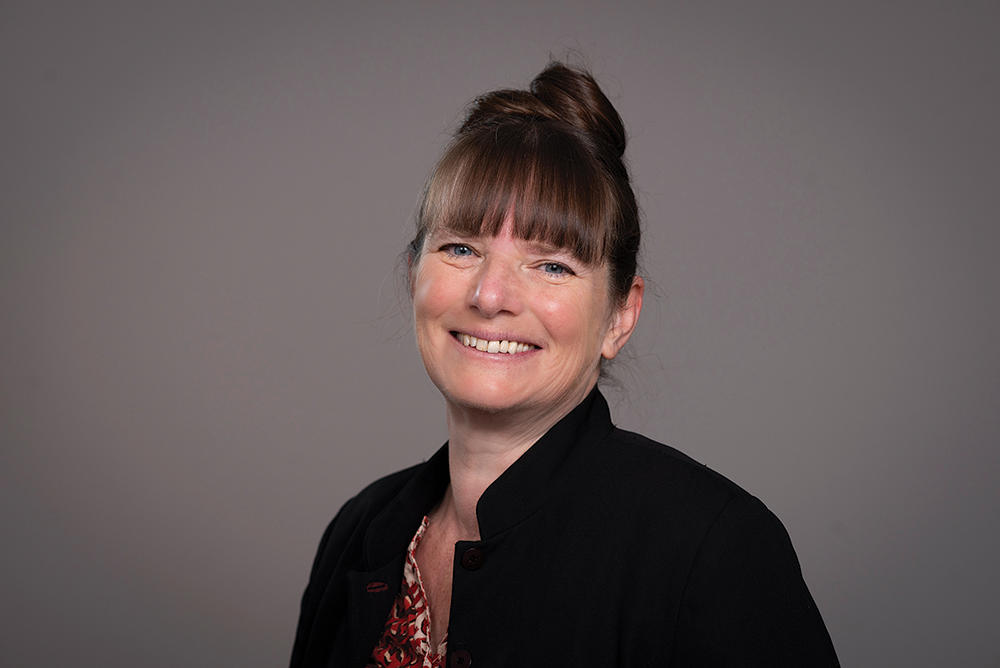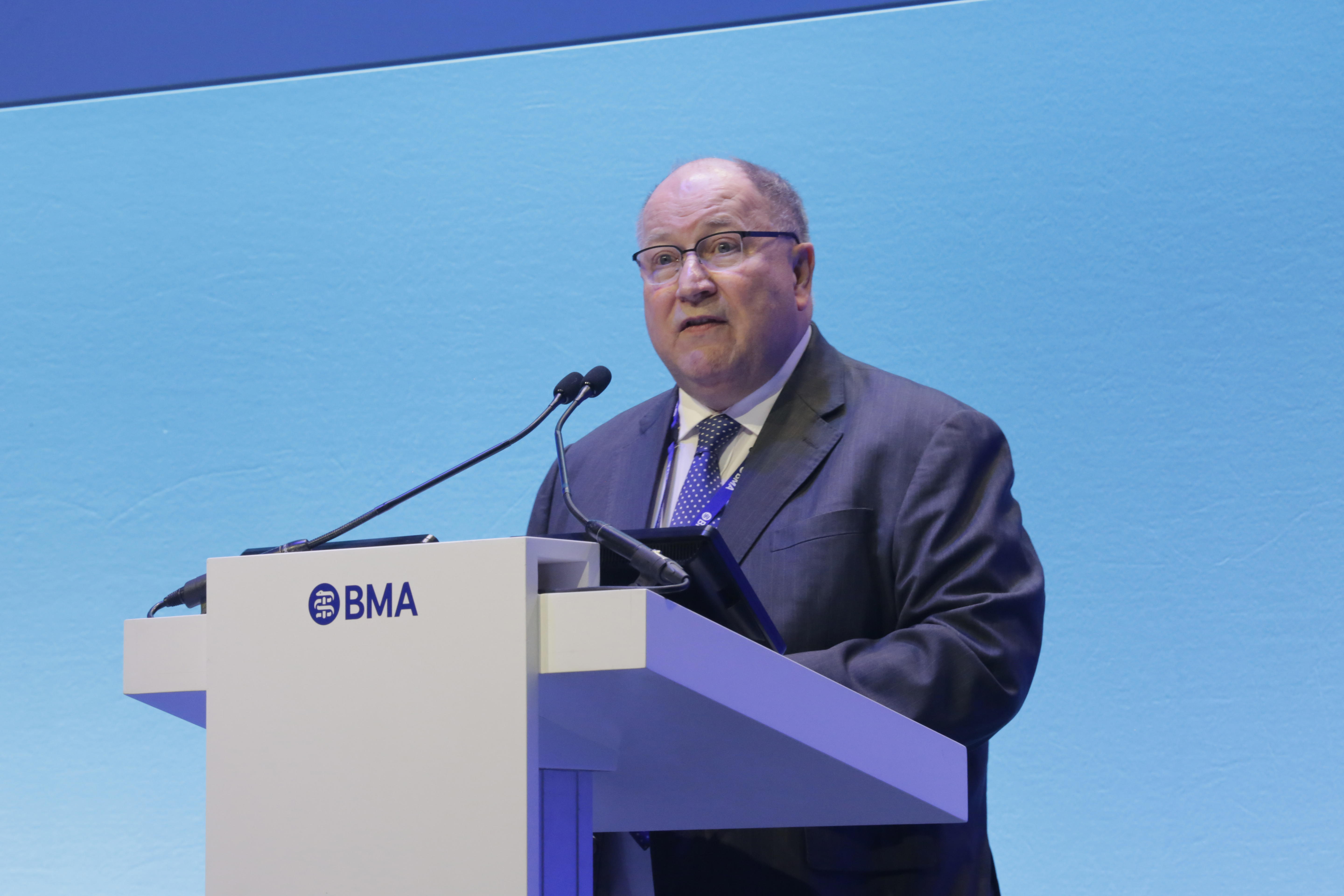In November 2022, 30-year-old Emily Chesterton died from a pulmonary embolism after a misdiagnosis from a PA (physician associate). She thought she was seeing a GP.
The coroner at her inquest said she should have been immediately referred to hospital and that, if she had, it was likely she would have survived the blood clot she had been told was a sprain in her calf.
Emily’s death is perhaps the starkest example of what can go wrong without sufficient supervision of the unregulated PA role, which NHS England has plans to expand.
Some doctors fear wider deployment of PAs is a risk to patient safety. Others believe there is a role for them in the NHS, but one that must be more clearly defined for clinicians and patients.
After a motion passed at this year’s BMA annual representative meeting urging the association to lobby for PAs to be named ‘physician assistants’ rather than associates, and to be regulated outside the GMC, the debate about the role is under the spotlight.
They’re making decisions for which you’re going to be the one ultimately liableDr Hayre
PAs were introduced in the UK in the early 2000s to address workforce shortages. This year’s NHS England long-term workforce plan aims to establish a workforce of 10,000 PAs by 2036/37, with at least 1,300 PAs to be trained each year from 2023/24.
Latest NHS Digital data shows 1,490 PAs working in secondary care in England as of March, a 79 per cent rise from 831 in March 2020 when comparable data were first published.
In general practice, there were 716 full-time equivalent PAs in England at the end of July this year – up from 13 in September 2015.
‘Masquerading as doctors’
 HAYRE: PAs should wear clear identity badges
HAYRE: PAs should wear clear identity badges
The Royal College of Physicians’ FPA (Faculty of Physician Associates) has been campaigning for ‘timely regulation’ of PAs and working on ways to explain better their scope of practice.
But some doctors say patients are often left unclear if they are seeing a doctor or a PA because of how PAs dress and communicate – raising consent issues.
‘From a patient’s point of view, it’s difficult to distinguish,’ says Jatinder Hayre, a London-based foundation year 2. ‘Being seen by someone in formal clothes with a stethoscope around their neck, you’d assume they were a doctor.
‘Some PAs are sort of “benefiting” from the general public’s lack of understanding about their role, and that’s becoming more widespread.’
Dr Hayre would like to see PAs in uniforms with clear ID badges. ‘It boils down to communication,’ he adds. ‘This should be bread and butter – but I’ve been in situations where PAs have been masquerading as doctors by wearing the wrong lanyards or saying they’re “more experienced” than the doctor without declaring their actual role.’ This can cause identities to be misconstrued, he says.
We have no idea what PAs are supposed to knowDr Salisbury
Tal Ellenbogen, an East Midlands regional junior doctor committee member who spoke in favour of the ARM motion, warned PAs could be mixed up with associate specialists, a type of staff, associate specialist and specialty doctor he feels can be ‘devalued’ by the confusion.
Dr Hayre supports the name change proposal, to make PAs’ level of training clear for patients, citing Emily Chesterton’s mother’s comment in a BBC interview that ‘physician associate sounds grander than a GP’.
The FPA says it has ‘worked hard to inform and guide the profession, so they understand how to introduce themselves to patients and use the correct terminology’ as a ‘relatively new’ NHS role and is working on leaflets, posters and infographics for patients, plus guidance for PAs on introducing themselves.
‘It is very important that patients have clarity about exactly who is caring for them and the scope of practice of that healthcare professional,’ it says.
The GMC says it would only intervene ‘if we believe a PA poses a serious risk to patients, has significantly or repeatedly failed to meet our standards, or has threatened public confidence in the profession’. It says ‘all healthcare professionals have a responsibility to introduce themselves properly’ but that ‘local systems’ also have ‘an important role to play’ in ensuring this.
‘Acting independently’
There have been reports of PAs filling stretched hospital rotas, with some covering senior house officer roles. Dr Hayre says this is ‘incredibly dangerous’ as this would entail performing complicated procedures which may be beyond their scope of practice or initiating complicated drugs.
‘These are decisions that need to be taken at a senior medical level, but they are taking [them] independently,’ he says.
Dr Hayre argues that the ‘initial sell’ of PAs was that they would take procedural tasks away from doctors, who would be freed up to do more complex tasks. But he says the reality is that PAs are often not based on wards but ‘almost let free in this wild environment of outpatients’.
The ARM motion says doctors should be able to refuse to supervise PAs, who ‘must take personal responsibility for their professional actions’ and only work under a named doctor who is ‘immediately available, appropriately indemnified and specifically consents in writing to supervise’.
The FPA says each PA should have a named consultant or GP who agrees their individual scope of practice, and that PAs are accountable for the care they provide, once a task is delegated. Quoting GMC guidance, it says delegating doctors are responsible for ensuring PAs have ‘the necessary knowledge, skills and training’ for the task.
These people aren’t doctors. Doctors are worrying about the erosion of a boundaryDr Salisbury
If a consultant or GP is not immediately contactable, the FPA says it is on them as supervisors to find a deputy, who must be specialty trainee 3 grade or above.
Guidance to give ‘greater clarity’ on PA supervision is being developed by the FPA, which is also surveying its members on supervision levels.
The GMC says its draft educational framework, which will come into effect when regulation starts, ‘provides an indication of the minimum range of tasks [PAs] can safely undertake’ but says ‘decisions on tasking and supervision are best made locally’.
It adds that its ‘ethical guidance places a responsibility on PAs not to work beyond the scope of their competence and to escalate and ask for help when needed’.
‘Preferential treatment’
Dr Hayre says a ‘sour feeling’ can develop when PAs, who cannot (yet) prescribe medication, ask colleagues – particularly foundation year doctors – to do so on their behalf. This can often be without the doctor seeing the patient themselves. He has refused to do this, stressing ‘this is my GMC licence under scrutiny’.
‘PAs are not under a regulatory body,’ says Dr Hayre. ‘They haven’t been through the rigorous medical and academic training we have, so why should we rely on their clinical judgement?’
Many doctors on rotation fear PAs have a greater influence on consultants owing to being ‘embedded’ in teams, which Dr Hayre says means they can get ‘preferential treatment’ in prescribing disputes. He says he is aware of instances of paper prescription notes being altered by PAs after the doctor has signed them.
‘It’s an awful dichotomy,’ he says. ‘They’re making decisions for which you’re going to be the one ultimately liable.’
The ‘preferential treatment’ Dr Hayre describes is a common complaint among doctors competing with PAs for training opportunities. The complaint is not that PAs are being trained to a high standard, it is that this is to the detriment of doctors who need these skills for future roles and should be prioritised given finite training resources in the current workforce crisis.
PAs are not under a regulatory body... why should we rely on their clinical judgement?Dr Hayre
The FPA told The Doctor it is aware of such ‘tensions’ but puts them down to an overall lack of training capacity.
‘Unfortunately, we do hear from doctors who feel that their training has been negatively impacted by the presence of PAs [but] we hear of examples where PAs have been introduced and doctors have benefited from training opportunities,’ it says.
The GMC has called for an urgent increase in training capacity but says ‘how training opportunities are created and divided is down to local management’.
Many doctors in foundation years and specialty training feel particularly aggrieved because they often earn less than PA colleagues.
Basic pay for foundation year 1s is £32,398 a year for 2023/24, after another sub-inflation pay award, with ST1s, ST2s, core trainee 1s and CT2s earning £43,923. They work 40-hour weeks before factoring in common unpaid overtime.
NHS England says PAs typically start on band 7 of Agenda for Change, which ranges from £43,742 to £50,056 per annum for 37.5 hours a week, though interns can be on band 6, which starts at £35,392.
 STETHS ALL ROUND: Patients can struggle to distinguish between a doctor and a PA
STETHS ALL ROUND: Patients can struggle to distinguish between a doctor and a PA
While some argue doctors’ future earning potential is higher than PAs, doctors in training say they have bills to consider and that their pay should be more than PAs anyway owing to greater levels of responsibility they carry – such as prescribing.
Dr Hayre says the situation is ‘inherently unfair’. The Faculty of PAs says pay is set by the NHS, using a job evaluation and matching process to determine banding.
Some doctors fear an expanded role for PAs in the NHS will lead to a two-tier service, with traditionally under-doctored areas relying more heavily on filling roles with PAs.
The British Journal of GPs’ 2021 study found ‘significant workforce inequalities’, with fewer GPs per patient, and more PAs and pharmacists per patient, in more deprived areas.
Dr Hayre warns those geographical inequalities ‘will also lead to intervention-based inequality’.
‘Extra pair of hands’
GP Helen Salisbury has taken on a PA at her practice in Oxford, who she says is ‘very heavily supervised’ and focuses on more straightforward duties such as urine infections or coughs.
While Dr Salisbury says having a PA carry out technical procedures such as spirometry can be helpful, she notes the time pressures of discussing every patient they see – which she insists upon but warns not every GP does the same.
‘If I’m working with a medical student, foundation year doctor or specialty trainee, I have a pretty clear idea of what they should be able to do at each stage of their training,’ says Dr Salisbury. ‘Whereas we have no idea what PAs are supposed to know.’
 SALISBURY: ‘Doctors are worrying about the erosion of a boundary’
SALISBURY: ‘Doctors are worrying about the erosion of a boundary’
Dr Salisbury is uncomfortable with PAs doing first-contact work with patients. ‘That’s not very sensible or safe,’ she says. ‘Lots of things would be missed or diagnosed late. That’s where you need a GP.’
Under the ARRS (Additional Roles Reimbursement Scheme), introduced in 2019, GP practices can claim back salaries of roles including PAs – essentially making them free to employ.
‘They’re an extra pair of hands,’ says Dr Salisbury who says she may not have employed the practice’s PA if their salary had to be paid for out of existing budgets.
If practices did have to fund PAs, she says, ‘I don’t know how much the role would exist’, noting space constraints at many surgeries and that PAs are ‘incredibly well paid for their level of expertise’.
‘They’ve done a degree and two more years, so similar to a fifth-year medical student, but they’re being paid way more than that medic will be until they’re several years qualified.’
‘Dumbing down’
PAs undergo a level 7 postgraduate (MSc) degree to qualify in the UK, usually over two years. The FPA says all programmes are run in accordance with the Competency and Curriculum Framework developed by the Department of Health and Social Care, the RCP (Royal College of Physicians) and the RCGP (Royal College of General Practitioners).
Doctors, who go through at least five years of medical school, have criticised the standard of questions on PA exams and OSCEs after the Faculty published a list of sample questions including some it now deems ‘too technical’.
Dr Salisbury says: ‘You want questions to be technical. If a professional can pass the exam with a little help from their friend Google, what was the point of going to see them?
‘It feels like a dumbing down, a disrespect and a failure to understand exactly what we do and the danger of trying to have people with fewer skills doing it.’
The GMC said the PA national exam, standards of which were set by the RCP, will be renamed the PA registration assessment (PARA). This exam, which PAs will need to pass before joining the GMC’s register, will be ‘quality assured’, it says. Those entering training from September 2023 will study a curriculum based around the revamped exams.
What they’re meant to be doing and with what level of supervision needs to be specifiedDr Salisbury
To better distinguish between the roles of doctor and PA, the BMA motion asks for PAs to be regulated by the HCPC (Health and Care Professions Council), which regulates biomedical scientists, clinical scientists, radiographers, physiotherapists, and paramedics among other professions.
In February 2019, then minister of state for health Stephen Hammond announced the GMC as the regulator for PAs, saying it was ‘best placed’. The GMC is expected to have drawn up its regulatory framework by the end of 2024.
While the FPA did not directly respond to the question of which body should regulate its members, it says regulation ‘has been slow’, and that many PAs believe the lack of regulation ‘impacts their role’.
Dr Salisbury says the HCPC would be ‘a better fit’, adding: ‘The GMC was created to regulate doctors. These people aren’t doctors. Doctors are worrying about the erosion of a boundary.’
Derbyshire GP Peter Holden, who introduced the ARM motion, said regulation by a body other than the GMC would draw ‘a line in the sand’.
 HOLDEN: Seeks regulation by body other than GMC
HOLDEN: Seeks regulation by body other than GMC
Until 2013, PAs were known as physician assistants in the UK with the UK Association of Physician Assistants its professional body before the 2015 formation of the FPA.
In response to calls to change associate to assistant, the FPA says the DHSC ‘strongly suggested’ at the time that ‘the term assistant would hold the profession back from becoming regulated’ and the change coincided with the formation of a Medical Associate Professions workforce group. Ultimately, it is a decision for the DHSC. Whatever the outcome, Dr Salisbury insists PAs ‘need to be regulated’ and have a better-defined role. She even ‘feels sorry’ for PAs who have qualified ‘in good faith’ but are now ‘getting a whole load of flak’.
‘What they’re meant to be doing and with what level of supervision needs to be specified and signed off as completely safe,’ she says. ‘We’re nowhere near that.’
Dr Hayre notes ‘a lot of resentment and anger from doctors’ but believes ‘a lot of PAs are fanning those flames as well’.
‘Professional pride comes into this,’ he says. ‘But ultimately the real losers from this debate are going to be patients.’
Published on 14 September


